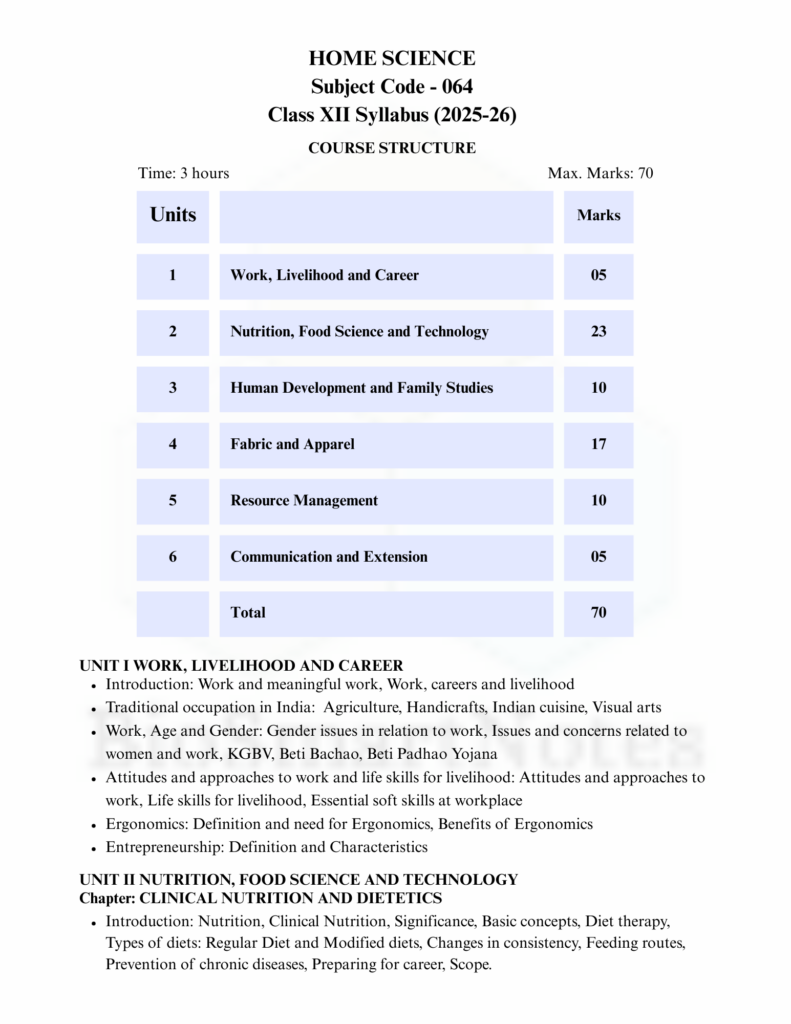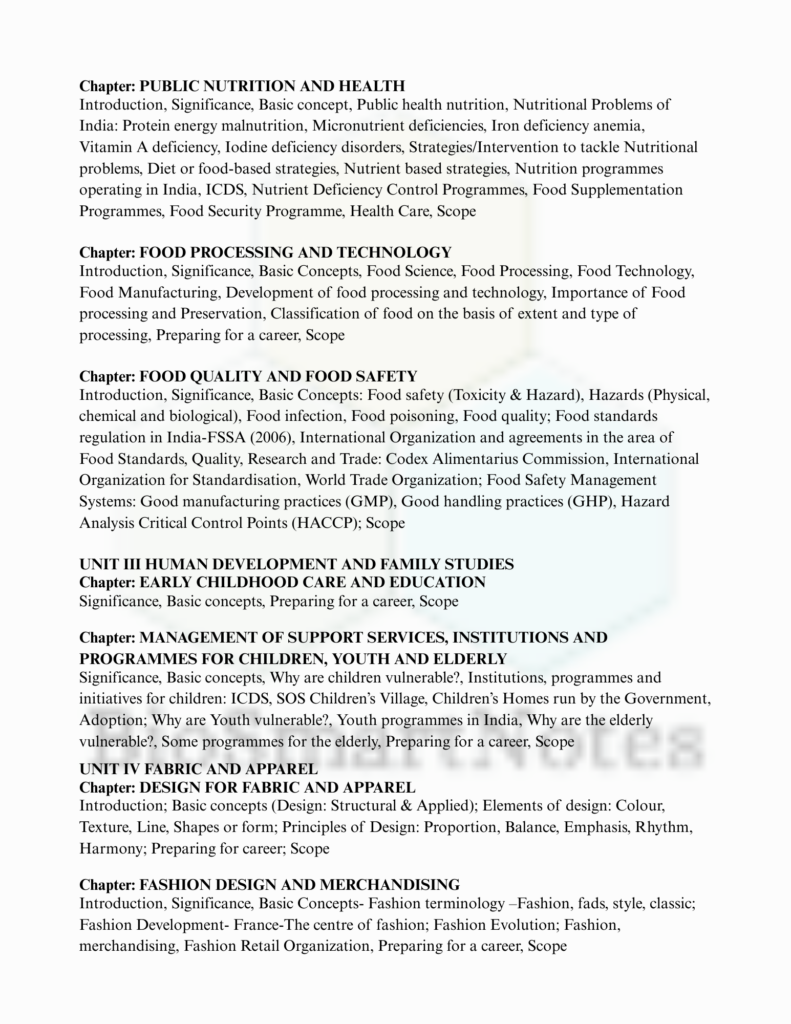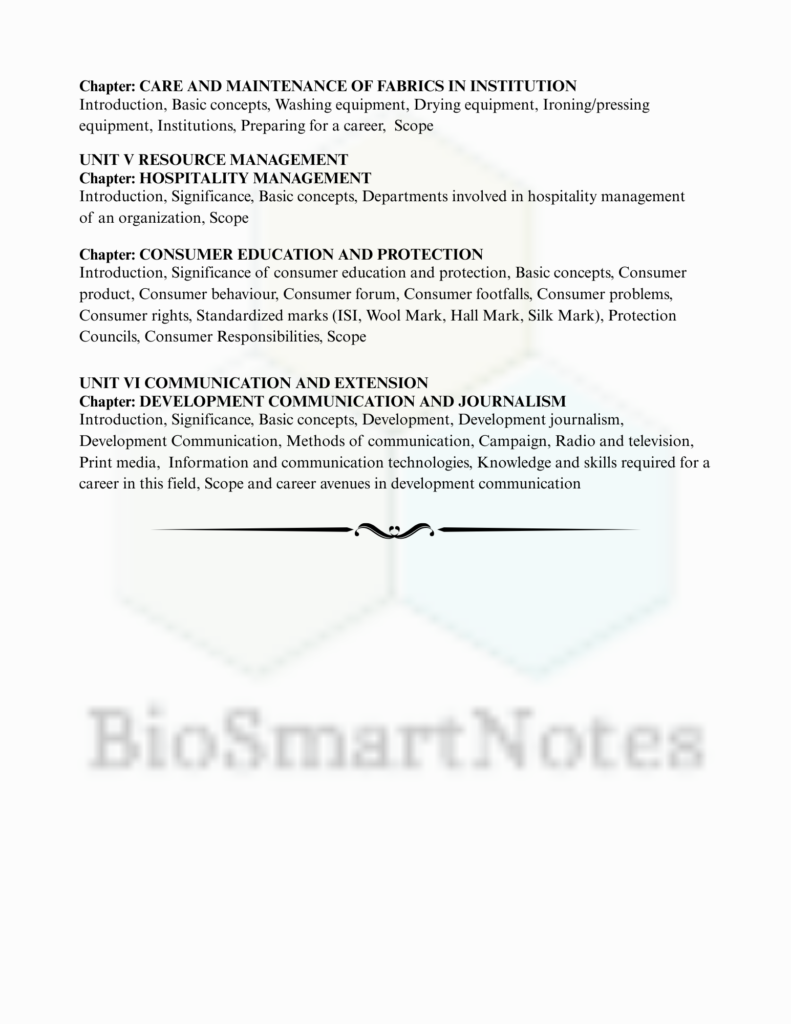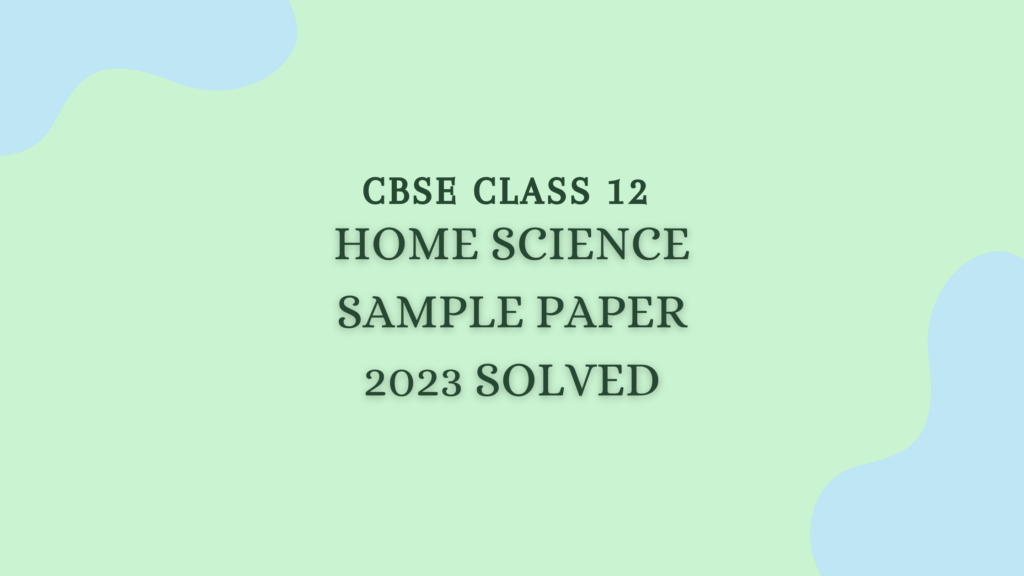Home Science is a subject that combines scientific principles with everyday life skills. In Class 12, Home Science becomes especially meaningful, as it explores important aspects of human development, family resource management, food and nutrition, textile science, and consumer education. The Class 12 Home Science Syllabus 2025-26 is designed to offer both academic understanding and practical insights that are useful in real life and relevant to a wide range of career paths.
Whether you are planning to pursue higher studies in home science, nutrition, early childhood education, fashion design, or social work—or simply want to develop life skills—this subject gives you a strong foundation.
Why Choose Home Science in Class 12?
Home Science is not just about learning how to manage a home. It is a multidisciplinary subject that helps you understand how individuals grow and interact within families and communities. It combines elements of science, economics, psychology, sociology, and art to prepare students to lead healthy, balanced, and responsible lives.
Here’s what makes it unique:
- It develops life management skills
- It enhances your understanding of food, health, and well-being
- It teaches financial and resource management
- It builds awareness of child development and human relationships
- It promotes creativity and design thinking
Home Science PYQs
- Home Science PYQ 2024 Paper Solved
- CBSE Class 12 Home Science 2023 Solved Paper
- CBSE Class 12 Home Science Solved Paper 2022
- CBSE Class 12 Home Science 2019 Paper Solved
Class 12 Home Science Syllabus 2025-26



Core Areas Covered in the Syllabus
While the exact syllabus may vary slightly depending on your education board (like CBSE or state boards), most syllabi are centered around the following broad areas:
- Human Development: Growth and development across different life stages, parenting, and care for special needs.
- Food, Nutrition & Health: Meal planning, nutritional needs in different life stages, disorders, and healthy eating.
- Resource Management: Use and management of time, energy, money, and household resources.
- Consumer Education: Consumer rights, responsibilities, and awareness of products and services.
- Textiles and Apparel: Basics of fabric science, clothing selection, care of garments, and design elements.
- Communication & Extension: Communication methods for social change, community development, and spreading awareness.
Each topic is linked to real-life situations and is designed to enhance both your theoretical knowledge and decision-making abilities.
How to Study Home Science Effectively
Here are some tips to help you make the most of the Class 12 Home Science syllabus:
✅ Understand Real-Life Relevance
Most topics in Home Science directly relate to your everyday life—nutrition, clothing, hygiene, family responsibilities, and resource use. Try to connect the theory with what you observe at home and in your community.
✅ Create Thematic Notes
Make chapter-wise summaries highlighting key terms, definitions, and examples. For instance, when studying nutrition, list important food groups and dietary needs for different age groups.
✅ Focus on Diagrams and Charts
Several topics involve flowcharts, meal plans, and design elements. Practice drawing and labeling neatly—it makes your answers more attractive and easier to understand.
✅ Use Case Studies and Examples
Wherever possible, include real-life examples or case studies to support your answers, especially in topics like family dynamics, child development, or consumer rights.
✅ Practice Sample Papers
Solve previous years’ question papers and mock tests to understand the paper pattern and improve your time management. Be familiar with long and short answer formats.
Practical Work and Project Component
Class 12 Home Science includes a practical evaluation, which may involve:
- Meal planning and food preparation for various age groups or specific health conditions
- Child development observations or toy/book creation for children
- Textile testing and care labels
- Budget planning and home resource organization
- Consumer product comparison and label analysis
These practicals help you apply what you learn in real-world contexts. Be sure to:
- Participate actively in lab work and demonstrations
- Keep your practical file well-organized and up to date
- Prepare thoroughly for viva questions during practical exams
Career Scope After Class 12 Home Science
Studying Home Science opens the door to diverse career options, such as:
- Nutritionist or Dietitian
- Child Development Specialist
- Fashion or Textile Designer
- Interior Designer
- Community Outreach Worker
- Food Technologist
- Teacher or Professor in Home Science
- Family Counselor or Social Worker
You can pursue undergraduate courses like B.Sc. Home Science, B.Sc. Nutrition and Dietetics, or professional diploma programs in fashion design, early childhood education, or hospitality.
Tips to Score Well in Home Science
- Stick closely to the NCERT textbook and your prescribed syllabus.
- Revise regularly and keep updating your notes.
- Practice writing complete, structured answers with examples.
- Use visuals like pie charts, tables, and drawings where needed.
- Don’t ignore the practicals—they are an important part of your overall score.
Conclusion
The CBSE Class 12 Home Science Syllabus 2025-26 offers a rich blend of academic and practical knowledge that prepares you not just for exams, but for life. Whether you’re looking to develop better personal habits, pursue a meaningful career, or contribute to your community, the subject gives you the tools to succeed.
With consistent effort, an open mind, and curiosity to learn, you can excel in Home Science and apply your knowledge in countless ways both in your personal and professional journey.
Additional Study Materials
- Class 12 Biotechnology Syllabus 2025-26
- Class 12 Biology Syllabus 2025-26
- Class 12 Agriculture Syllabus 2025-26




